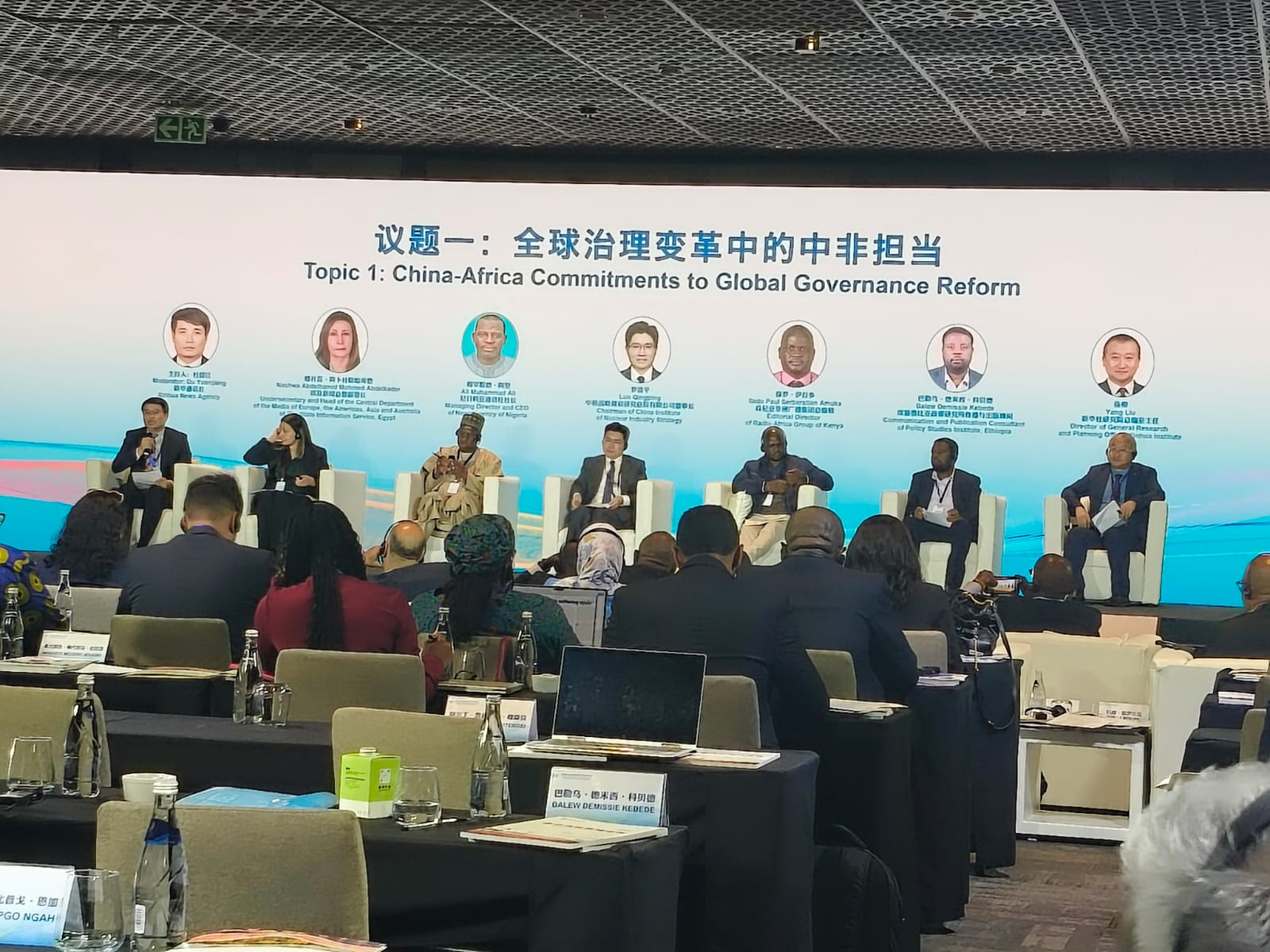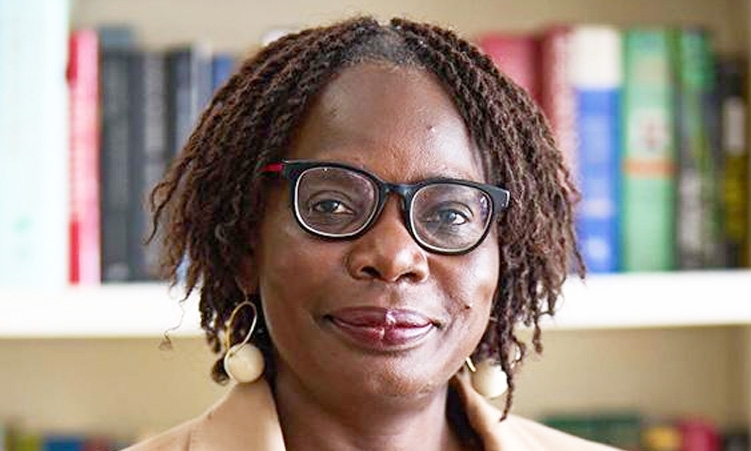 Panelists during the Global South Media and Think Tank Forum on China-Africa Partnership, held in Johannesburg on November 13, 2025./HANDOUT
Panelists during the Global South Media and Think Tank Forum on China-Africa Partnership, held in Johannesburg on November 13, 2025./HANDOUT
Leaders from media, government, and think tanks across Africa and China have issued a clarion call for the nations of the Global South to seize control of their own narratives.
They also vouched for the countries to reform outdated global systems, and solidify a partnership built on tangible development and shared historical experience.
The Global South Media and Think Tank Forum on China-Africa Partnership, held in Johannesburg Thursday, had speakers argue that the current geopolitical moment requires a shift in power dynamics.
“The rise of the Global South is a distinct feature of our time,” stated Wu Peng, China’s Ambassador to South Africa.
He anchored the China-Africa relationship as one of “shared history of anti-colonialism and shared aspirations of development”. The envoy declared that bilateral relations between China and Africa were "at its best in history", calling on the concerned duty bearers to seize the moment and change the situation in favour of the truth.
The sentiment of a transformative partnership was also shared by Lyu Yansong, Editor-in-Chief of Xinhua News Agency. He emphasised the China-Africa cooperation's physical impact across the continent.
“Under the Belt and Road Initiative and the Global Development Initiative, the cooperation has seen 100,000 kilometres of roads and 10,000 kilometres of railway,” Lyu said, adding that it has also created an estimated 1.1 million jobs.
The Xingua News Agency boss described the results of the ensuing partnership as “visible and palpable,” and challenged the media to better highlight the gains realized so far. The forum moved beyond listing infrastructure projects and urged that leaders confront the foundational structures of global power.
A recurring theme among the speakers, including Radio Africa Group Editorial Director Paul Ilado, was the urgent need to dismantle what they described as an unjust and unrepresentative international order.
"The Star has played a role in fostering this relationship. We have engaged Chinese organizations to tell stories of the impact of this cooperation. Our collaboration has allowed us to showcase Kenyan culture, innovation and entrepreneurship," he said.
He cited President William Ruto's advocacy for a more equitable governance framework as among the notable efforts towards the sought-after commitment.
"The partnership between Kenya and China serves as a model for cooperation that can inspire other nations," Ilado said.
Leslie Richer, Director of Information at the African Union, delivered a compelling argument for systemic change.
“Africa is not a spectator but a co-author of this transformation,” she asserted.
Richer highlighted the long-standing injustice of Africa having no permanent seat on the UN Security Council despite representing a significant portion of the world’s population.
“Calls have been for decades and the time for action is now,” she stated, directly calling on China to join Africa in the push for a more robust era of multilateralism.
Echoing this, Professor Peter Kagwanja, Executive Director of the Kenya's Africa Policy Institute, presented research suggesting a dramatic future realignment of global power.
"Research shows that by 2050, with the exception of the USA, the rest of the world’s current powerhouse economies will drop off from the G7 global ranking, replaced by China, India, Brazil, Indonesia, Mexico and Russia.
"Additionally, 15 of the world’s G20 countries will be from the Global South, including no less than three from Africa: Nigeria, Egypt and South Africa.
"This calls for the reform of the global governance system to reflect the new balance of power," he said.
The call for equitable economic relations was complemented by Shen Yumou, director general of Hunan Province’s Department of Commerce, who outlined practical steps China is taking to help Africa play at the same league on matters trade and food imports.
He cited Hunan's part in promoting African trade as witnessed in the platforms helping achieve the cause. He said China was keen on establishing “permanent platforms for Africa industrialisation incubation, all aimed at rebalancing the trade relationship.
Central to achieving these geopolitical and economic goals, speakers argued, is the battle over narrative. The forum positioned media and think tanks not as passive observers, but as active architects of a new global discourse.
“To reclaim our narrative is to reclaim our dignity,” declared Ismaila Ceesay, Gambia’s Information Minister.
“It is how we are perceived, and shape the global conversation on our own terms.” He emphasised that the effort is not to compete with existing global narratives but to “enrich them.”
Iqbal Surve, Chairman of South Africa’s Independent Media, framed the call as a profound responsibility for media professionals.
“The narrative can be shaped by ourselves better than be left to others,” he said, urging media colleagues to take a lead role. His organisation’s long-standing collaboration with Xinhua, he noted, “embodies a collective determination to tell our stories and shape global narratives.”
Lyu Yansong reinforced the joint mission, stating that China and Africa have a chance to become the “reasonable voice in the global governance initiative system” and shoulder the “responsibility of disseminating the correct information.”
He announced the release of a “Global South joint partnership action plan” designed to strengthen this media and think-tank alliance.
At the center of the Johannesburg declaration was that media emerges as a contributor to "a proactive, confident Global South, moving from the periphery to the center of world affairs. It was framed as a vision where cooperation, as Leslie Richer of the AU put it, “must support people, not just institutions.”
She concluded with a forward-looking statement that, “The future of global governance will be determined by those who imagine a better world, where development is a right not a privilege.”
The forum combined concrete development achievements with a unified demand for systemic reform and a commitment to self-representation, signalling a new chapter in South-South cooperation.
From the talks, it was evident that the Global South is no longer asking for a seat at the table but is building its own.














